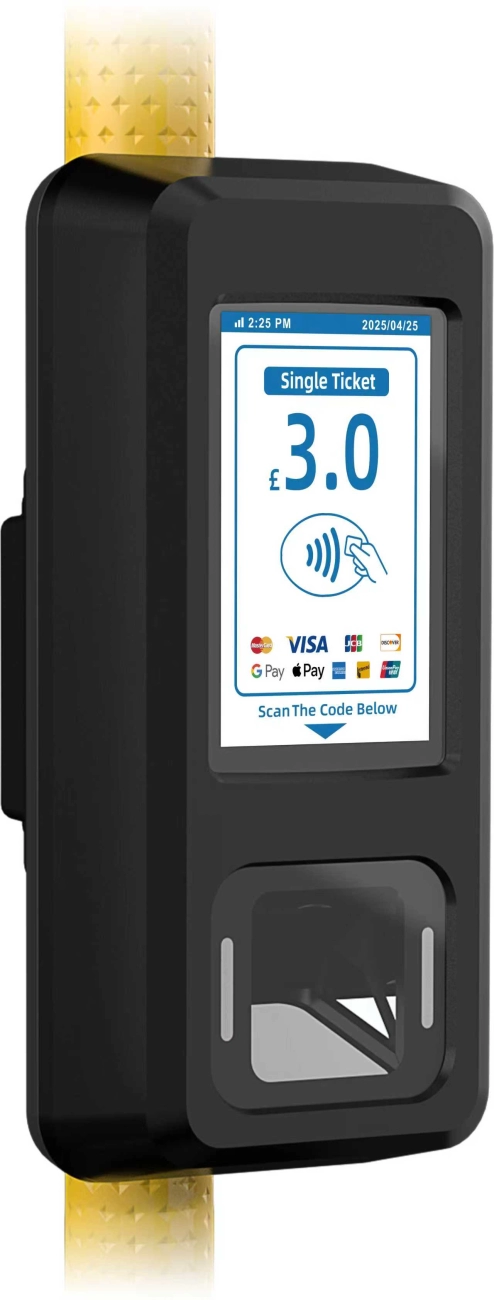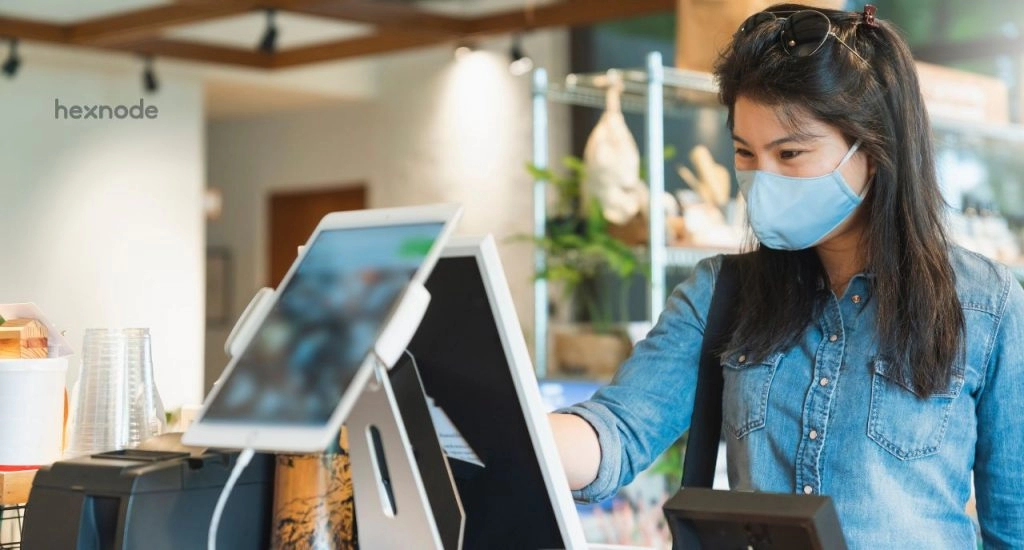Android POS Devices for Global Business Scalability and Flexibility

Core Advantages of Android POS Devices for International Scalability

Expanding a business globally introduces a unique set of operational challenges. Android POS devices provide a flexible and scalable solution tailored to meet these demands, enabling enterprises to grow seamlessly across borders. Here are the critical advantages that make Android POS terminals the preferred choice for international enterprises.
Cost-Efficiency Without Compromise
Global expansion often requires managing tight budgets while maintaining operational excellence. Android POS systems deliver cost-effective scalability solutions by leveraging:
- Open-source Android OS: Reduces licensing fees compared to proprietary systems.
- Off-the-shelf hardware options: Lightweight Android devices and rugged handheld POS units offer durable, affordable choices for diverse environments.
- Enterprise Mobile Device Management (MDM) tools: Simplifies remote updates and maintenance across a global POS fleet, lowering support costs.
This combination ensures businesses can scale without sacrificing performance or customer experience.
Seamless Multi-Currency and Payment Integration
Handling multiple currencies and payment methods is essential for cross-border retail and hospitality operations. Android POS devices excel in:
- Multi-currency Android payment systems: Native support for international currencies enables smooth transaction processing without delays.
- PCI-compliant Android POS devices: Ensures secure handling of sensitive payment data across various countries.
- Cross-border transaction processing: Simplifies currency conversion and compliance with local payment regulations.
Such flexibility reduces friction at checkout, improving customer satisfaction and boosting revenue.
Hardware Versatility for Diverse Environments
International enterprises operate in a variety of physical settings—from urban retail chains to remote emerging markets. Android POS devices stand out by offering:
- Customizable Android cash registers: Adapt POS hardware features to specific business needs.
- Offline-capable mobile POS hardware: Ensures transaction continuity even without reliable internet.
- Rugged handheld POS devices: Built to withstand challenging environments common in global markets.
- Multi-language support in Android POS: Enhances user experience for both staff and customers.
This hardware versatility empowers businesses to maintain consistent operations regardless of location or infrastructure limitations.
With their scalable, secure, and adaptable design, Android POS systems are ideally suited for the complexities of international retail and hospitality. Are you ready to leverage these advantages for your global expansion? Discover how customizable Android checkout hardware can streamline your operations today.
Overcoming International Challenges with Android POS Flexibility

Expanding globally means facing a set of unique challenges—from strict regulations to complex operations across multiple locations. Android POS devices offer the flexibility that international enterprises need to stay ahead.
Regulatory Compliance and Security in Global Markets
Every country has its own rules for payment processing, data privacy, and security standards. Android POS systems shine here because many come PCI-compliant out of the box, ensuring your payment data meets global security requirements. Plus, Android’s open platform supports updates for new regulations without replacing your entire system.
- Built-in support for secure transaction protocols across borders
- Regular software updates to address locale-specific compliance
- Tools for data encryption and fraud prevention tailored to international standards
Centralized Management for Multi-Site Operations
For enterprises running dozens or even hundreds of stores across countries, managing every device individually is a nightmare. Enterprise Mobile Device Management (MDM) solutions integrated with Android POS lets you control, update, and monitor your fleet remotely—all from a central dashboard.
- Push software updates or security patches globally in minutes
- Monitor device health and troubleshoot issues remotely
- Enforce security policies consistently across all locations
This centralization saves time, cuts costs, and ensures uniformity in customer experience.
Omnichannel Integration for Borderless Retail
Customers expect to buy whenever and wherever—online, in-store, or via mobile. Android POS terminals support omnichannel integration flawlessly. This means your sales, inventory, and customer data sync seamlessly, no matter the platform or country.
- Real-time inventory tracking to prevent stock confusion
- Cross-border transaction processing without hassle
- Support for multi-currency Android payment systems for smooth checkout everywhere
By connecting all sales channels, you maintain consistent service and boost revenue across international markets.
In short, Android POS’s flexibility is not just about hardware but how it adapts to the complex demands of global retail. From compliance and security to centralized control and omnichannel power, it helps enterprises thrive no matter where they operate.
Real-World Case Studies Android POS in Action for Global Enterprises
When it comes to international businesses, seeing Android POS devices at work can offer valuable insights into their true potential. These case studies highlight how scalable POS terminals for global retail and multi-currency Android payment systems make a real difference.
Retail Chain Expansion Success
A major retail chain based in the US used customizable Android cash registers to streamline their international rollout. The key to their success was the flexibility and cost-effective POS scalability solutions the Android platform provided. The chain deployed lightweight Android devices with multi-language support, allowing quick adaptation to local markets. Using enterprise MDM for POS fleet management, the company centrally controlled devices across multiple countries, ensuring consistent performance and security compliance.
Results
- Rapid deployment across 15 countries
- Uniform software updates and hardware management
- Reduced operational costs by 25% through standardized hardware
- Seamless cross-border transaction processing with integrated payment gateways
This example shows how Android POS hardware scalability in retail can boost international growth while keeping overhead low.
Hospitality Group Multi-Currency Win
In the hospitality sector, a global group operating hotels and restaurants relied on offline-capable mobile POS hardware running on Android to handle guests from various countries. With multi-currency Android payment systems, the group accepted payments in dozens of currencies without hassle. Rugged handheld POS devices were deployed in outdoor and mobile settings, providing versatility across properties.
Achievements
- Smooth multi-currency transactions improved customer satisfaction
- PCI-compliant Android POS devices ensured secure payments worldwide
- Increased transaction speed during peak hours with reliable hardware
- Integrated omnichannel support extended booking and payment options
This group’s experience highlights the power of enterprise-grade Android payment solutions in managing complex international payment needs efficiently.
Lessons Learned and Scalability Metrics
From these deployments, some clear lessons emerge around global Android POS implementations:
- Choose hardware with open-source POS flexibility to adapt quickly to local requirements.
- Prioritize centralized management via enterprise MDM to maintain control over multi-site operations.
- Focus on omnichannel integration for international chains to offer seamless customer experiences.
- Evaluate cost-effective Android terminals for enterprises that can scale as business grows without sacrificing performance.
Key scalability metrics to track:
- Time to deploy across new locations
- Device uptime and reliability in remote markets
- Payment processing success rates across different currencies
- Cost savings from unified hardware and software platforms
Using these insights, businesses can ensure a smooth rollout and real-time management of a global Android POS network.
For more details on how customizable Android checkout hardware and international merchant app-based systems support global scaling, check out our guide on customization of POS solutions for international markets. Also, explore how POS solutions are crucial for international enterprises in this insightful post on why POS solutions are crucial for international enterprises.
Implementing Android POS for International Rollouts
Rolling out Android POS devices across international locations takes planning and focused steps. Leveraging scalable POS terminals for global retail means you need to match the right hardware and software to each market’s unique needs. Here’s a clear guide to help you get started, customize effectively, and train your teams for smooth deployments.
Assessing Your Needs
Before choosing your Android POS system, take a solid look at what your business requires on a global scale:
- Map your retail or hospitality footprint to understand site diversity—urban, rural, emerging markets, etc.
- Evaluate payment methods common in each region, including multi-currency and alternative digital wallets.
- Consider connectivity limitations—does your hardware need offline capabilities for reliable use?
- Factor in compliance requirements like PCI standards and local data protection laws.
- Identify specific operational goals, such as inventory management, customer engagement, or omnichannel integration.
Taking this step thoroughly ensures you pick the right customizable Android checkout hardware to meet real-world demands.
Selection and Customization
Once needs are clear, the next move is finding and modifying your POS devices for each market. Focus on:
- Choosing cost-effective Android terminals for enterprises that are rugged enough for varying environments.
- Opting for devices with multi-language support in Android POS to serve local staff and customers.
- Ensuring your system supports cross-border transaction processing with seamless multi-currency Android payment systems integration.
- Integrating your POS fleet with enterprise MDM for POS fleet management to remotely manage security, updates, and settings.
- Customizing UI and software features so that they align with local payment methods, receipt formats, and workflows.
This level of customization guarantees that each site runs efficiently and keeps customer experience consistent worldwide.
Deployment and Training
Deploying Android POS hardware isn’t just about shipping and plugging in devices. It requires a structured rollout and training plan:
- Start with pilot locations to test deployment strategies and hardware performance.
- Use cloud-based tools for centralized management of multi-site operations to monitor, update, and troubleshoot devices anywhere.
- Develop simple, region-specific user guides emphasizing features like offline-capable mobile POS hardware and PCI compliance.
- Conduct hands-on training sessions for local employees focusing on payment processing, device handling, and security protocols.
- Collect feedback early and iterate quickly to resolve pain points, ensuring a smooth transition for your teams.
This approach helps scale your solution internationally without compromising operational control or customer satisfaction.
By following these steps—assessing needs, selecting and customizing devices, and carefully deploying with training—you set your international enterprise up for success. Android POS’s flexibility and adaptability make it an ideal choice for businesses aiming to grow across borders while maintaining consistent high standards.
